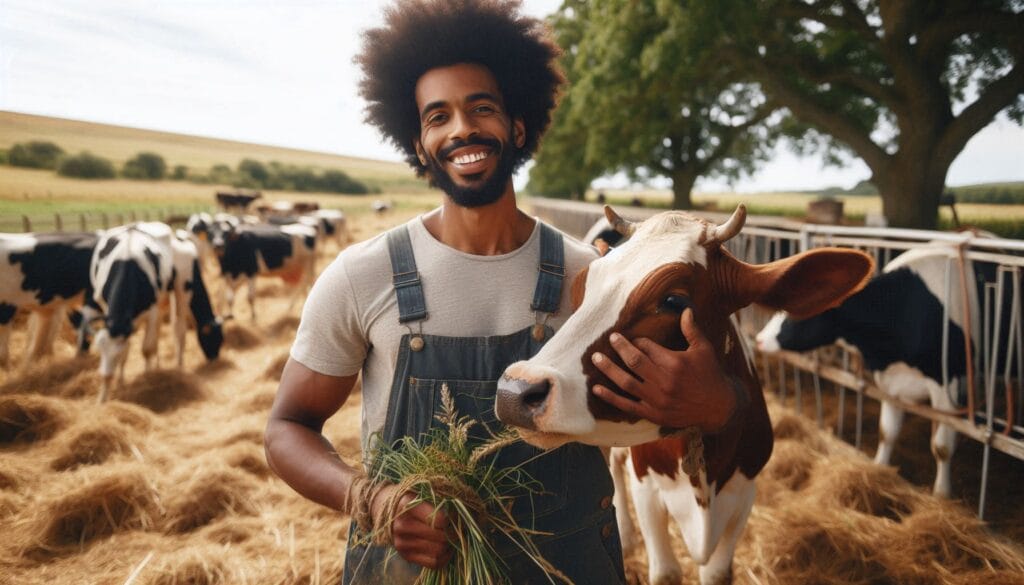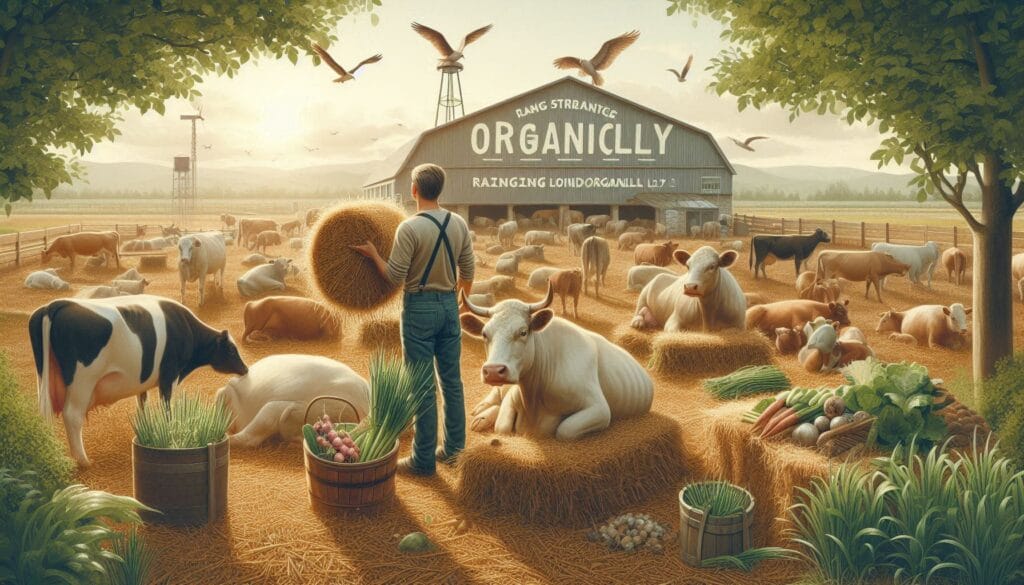Raising livestock organically is a vital component of sustainable agriculture. It ensures the health and well-being of animals, promotes ecological balance, and produces high-quality, chemical-free meat, dairy, and other products. This blog explores best practices for managing livestock organically, giving aspiring and established farmers actionable insights to optimize their efforts.
The Importance of Organic Way Livestock Farming

Organic livestock farming aligns with principles of animal welfare and environmental sustainability. Key benefits include:
- Better Animal Health: Reduced exposure to synthetic chemicals and medications.
- Eco-Friendly Practices: Promotes biodiversity and reduces environmental impact.
- Consumer Trust: Meets the growing demand for organic and ethically produced food.
Best Practices for Managing Livestock Organically
1. Choose the Right Breeds
Selecting the appropriate breeds for your organic farm is essential. Consider:
- Adaptability: Choose breeds that thrive in your local climate.
- Resistance: Opt for breeds resistant to common diseases.
- Purpose: Determine whether you need animals for meat, dairy, eggs, or other products.
2. Provide Access to Pasture
Organic standards emphasize the importance of free-range systems. To ensure proper pasture access:
- Space Requirements: Allocate sufficient land for animals to graze and roam.
- Rotational Grazing: Rotate pastures to prevent overgrazing and promote regrowth.
- Diverse Forage: Plant a variety of grasses and legumes to provide a balanced diet.
3. Feed Animals Organic Diets
Nutrition is critical in organic livestock farming. Feed your animals:
- Certified Organic Feed: Free from synthetic additives, pesticides, or GMOs.
- Natural Supplements: Use minerals and vitamins derived from organic sources.
- Homegrown Feed: Grow your own fodder to ensure quality and reduce costs.
4. Avoid Antibiotics and Hormones

Synthetic antibiotics and growth hormones are prohibited in organic farming. Instead:
- Focus on Prevention: Maintain hygiene, monitor animal health, and use proper ventilation.
- Use Natural Remedies: Rely on herbal medicines, probiotics, and essential oils.
- Quarantine Sick Animals: Prevent the spread of disease without resorting to chemicals.
5. Maintain High Animal Welfare Standards
Animal welfare is a cornerstone of organic way farming. Ensure that your livestock:
- Live Comfortably: Provide clean bedding, proper shelter, and ample space.
- Are Treated Humanely: Handle animals gently during feeding, transport, and other activities.
- Experience Minimal Stress: Avoid practices like tail docking or dehorning unless absolutely necessary.
6. Integrate Livestock into Crop Systems
Organic farms thrive on synergy. Integrate livestock with crops by:
- Manure Management: Use animal waste as a natural fertilizer.
- Pest Control: Allow chickens or ducks to manage insect populations in fields.
- Crop Rotations: Alternate between pasture and crop planting for soil health.
7. Ensure Compliance with Organic Standards

To be certified organic way, follow these guidelines:
- Keep Detailed Records: Document feed sources, medical treatments, and pasture usage.
- Adhere to Regulations: Understand local organic certification requirements.
- Conduct Regular Inspections: Prepare for periodic checks by certification agencies.
Challenges in Organic Way Livestock Farming
Like any farming method, organic way livestock management has its challenges. Common issues include:
- Disease Management: Without antibiotics, controlling outbreaks can be more difficult.
- Feed Costs: Organic feed is often more expensive than conventional options.
- Market Access: Finding buyers willing to pay premium prices can require extra effort.
Tips for Success
To excel as an organic way livestock farmer:
- Start Small: Begin with a manageable number of animals and scale up as you gain experience.
- Join Networks: Connect with other organic way farmers for support and advice.
- Educate Consumers: Highlight the benefits of organic livestock products to build customer loyalty.

Conclusion
Organic livestock farming is a rewarding but demanding endeavor. By prioritizing animal welfare, ecological balance, and sustainable practices, you can produce high-quality organic products while contributing to a healthier planet.
5 Quick Questions and Answers About Organic Livestock Farming
Q1: What is organic livestock farming?
A: Organic livestock farming involves raising animals without synthetic chemicals, antibiotics, or hormones while prioritizing animal welfare and ecological sustainability.
Q2: How is organic feed different from conventional feed?
A: Organic feed is free from GMOs, synthetic additives, and pesticides, ensuring a healthier diet for animals and more natural products for consumers.
Q3: What are the key benefits of organic livestock farming?
A: It promotes better animal health, reduces environmental impact, and meets the growing demand for ethical, chemical-free food.
Q4: How can organic way farmers prevent disease without antibiotics?
A: By focusing on prevention through proper hygiene, nutrition, natural remedies, and quarantining sick animals to control outbreaks.
Q5: What is rotational grazing, and why is it important?
A: Rotational grazing involves moving livestock between pastures to prevent overgrazing, promote forage regrowth, and maintain soil health.




Thanks for sharing. I read many of your blog posts, cool, your blog is very good.
Your article helped me a lot, is there any more related content? Thanks!